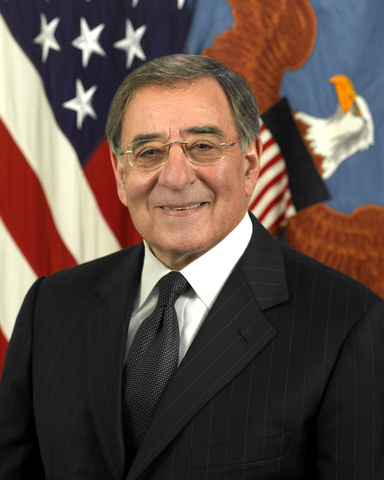WEST LAFAYETTE, Ind. & WASHINGTON--(BUSINESS WIRE)--The Center for Tech Diplomacy at Purdue welcomes Leon Panetta, former U.S. Secretary of Defense and Director of the Central Intelligence Agency, to its distinguished bipartisan Global Advisory Board. Secretary Panetta joins General Stanley McChrystal, Dr. Dan Goldin, Ambassador Robert Hormats, and other luminaries as a key advisor to the leadership of the Center for Tech Diplomacy at Purdue, the world’s preeminent institution for securing freedom through tech diplomacy. Secretary Panetta’s extensive national security expertise will help the Center for Tech Diplomacy grow its Global Trust Network and shape the institution’s mission, strategy, and execution.
“China’s techno-economic aggression presents a serious threat to the United States and the free world, especially when it comes to advanced technologies such as 5G, AI, and semiconductors,” said Secretary Panetta. “The key to securing freedom is securing high tech through widespread adoption of trusted technologies. The Clean Network pioneered a trust-based model for countering authoritarian aggression across all areas of techno-economic competition. I support the adoption of that successful model by the Center for Tech Diplomacy at Purdue in its noble mission, and I am honored to join its Advisory Board.”
“Our success in recruiting a renowned and respected leader like Secretary Panetta reflects the importance of countering authoritarianism through trusted technology and our unique nonpartisan mission,” said Keith Krach, Chairman and Co-Founder of the Center for Tech Diplomacy at Purdue. “His leadership experience as Secretary of Defense, Director of the CIA, White House Chief of Staff, Director of OMB, and Chair of the House Budget Committee as a Congressman brings a wealth of knowledge and real-world expertise at the highest levels of government and geopolitical competition. I look forward to working with Secretary Panetta on our robust tech diplomacy agenda.”
“There are inextricable links between technology advancements and national interests,” said Bonnie Glick, the inaugural Director of the Center for Tech Diplomacy at Purdue. “This linkage is increasingly recognized by decision-makers across the political spectrum as well as high tech business leaders. Secretary Panetta’s wisdom and the breadth of his experience will be an invaluable resource for the Center for Tech Diplomacy as it sets out to advance freedom through ‘techno-statecraft.’”
About Secretary Leon Panetta:
Secretary Panetta began his long and distinguished public service career in 1964 as a U.S. Army intelligence officer, receiving the Army Commendation Medal. Upon discharge he went to work in Washington as a legislative assistant to U.S. Senate minority whip Tom Kuchel of California. He was elected to the U.S. House of Representatives in 1976.
Serving his central coast district in Congress for 16 years, Secretary Panetta became a respected leader on agriculture, the federal budget, ocean, and healthcare issues, and from 1989 to 1993 he chaired the House Budget Committee. In 1993, Secretary Panetta left Congress to serve as director of the Office of Management and Budget for the Clinton administration. Then, in 1994, he accepted appointment as the president’s chief of staff. After the Clinton administration, Secretary Panetta and his wife Sylvia established and co-directed the nonpartisan, not-for-profit Panetta Institute for Public Policy, based at California State University, Monterey Bay.
Secretary Panetta returned to public service at the start of the Barack Obama administration as director of the Central Intelligence Agency, where he supervised the operation to find and bring international terrorist Osama bin Laden to justice. Then, as Secretary of Defense, he led efforts to develop a new defense strategy, conduct critical counter terrorism operations, strengthen U.S. alliances, and open military service opportunities to Americans regardless of gender or sexual orientation.
At present, he serves on the boards of directors for Oracle and Blue Shield of California. He serves as co-chair of the Bipartisan Policy Center’s Defense Personnel Task Force and the Center for Strategic and International Studies Commission on Countering Violent Extremism.
About the Center for Tech Diplomacy at Purdue:
The Center for Tech Diplomacy at Purdue is the world’s preeminent institution focused on techno-statecraft, a new model of diplomacy that bridges the high-tech sector with the foreign policy and national security sectors to ensure trusted technology is used to advance freedom. The Center for Tech Diplomacy at Purdue’s nonpartisan model focuses on rallying our allies, leveraging the innovation of the private sector, and amplifying democratic values based on trust.
For more information, go to techdiplomacy.org. Follow the Center for Tech Diplomacy at Purdue on Twitter, LinkedIn, and YouTube.




